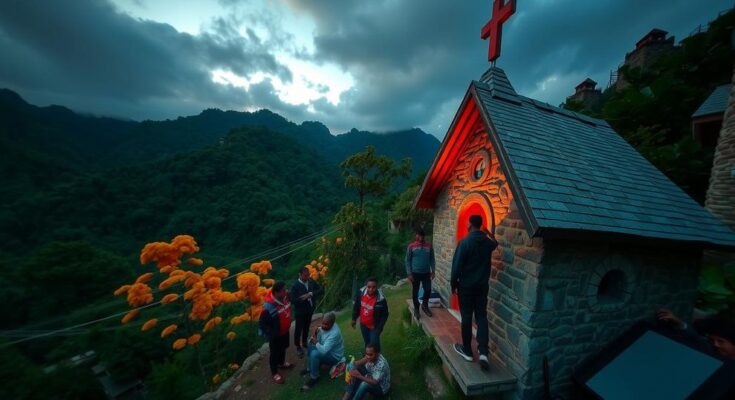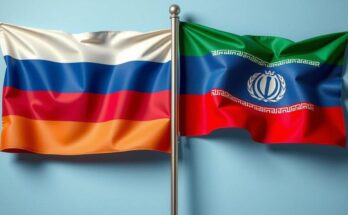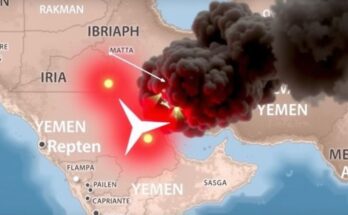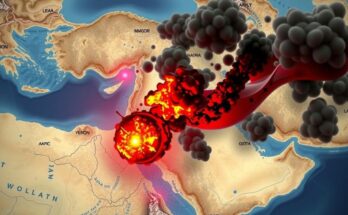The Catholic Church in eastern DRC faces a humanitarian crisis exacerbated by ongoing conflict between rebel groups. Efforts are being made to provide not only basic necessities but also hope amidst devastating conditions. With limited resources, the church remains dedicated to its mission, focusing on health care, community support, and skill development for the youth. Direct calls for assistance highlight the urgent need for added support to maintain these humanitarian efforts.
In the midst of one of the most severe humanitarian crises globally, the Catholic Church in the eastern Democratic Republic of Congo (DRC) is making earnest efforts to provide not only basic necessities such as food, shelter, and medicine, but also an essential offering of hope. Bishop Sikuli Paluku Melchisédech of Butembo-Beni emphasized that the church’s work in such perilous circumstances reflects its mission to assist those in need, despite limited resources. He remarked, “We have a vision, it is the mission of the church that we are in the process of accomplishing, according to the circumstances of the moment and the possibilities that we have to intervene with our sisters who are in need.” The ongoing crisis is exacerbated by violent competition between rebel groups, notably the Allied Democratic Forces (ADF) and the March 23 Movement (M23), as they vie for control of the region’s rich mineral resources. This conflict has led to mass displacements, forcing families to flee their homes in search of safety. Francois Kaputu, the programs coordinator for Caritas at the Butembo-Beni diocese, described the dire situation, stating that individuals are caught in an untenable position with “an unbearable social, security and humanitarian situation.” The region faces control by the Rwanda-backed M23 in the east, while the ADF occupies the northern area, effectively placing the population under siege. Kaputu reported severe violence resulting in widespread poverty, displacement, loss of life, psychological trauma, and economic ruin, making agricultural access increasingly precarious—80 percent of the population relies on farming for their sustenance. The toll of the conflict has not spared the healthcare system, which has suffered significant damage and looting, thereby complicating efforts to manage public health challenges, including a rising risk from the ongoing M’Pox epidemic. “After losing all their possessions to looting, the affected individuals can no longer access their fields, leaving them in a dire situation,” Kaputu noted, emphasizing the urgent need for essential survival items and robust healthcare support. Currently, a brief hiatus in hostilities has been noted to facilitate humanitarian aid, although the situation remains fraught with tension. Kaputu indicated a crucial priority for Caritas involved prompt cooperation and resource mobilization to address community resilience. He expressed a pressing need for additional support, stating, “It is a situation that requires much more resources than are available. We need good-willed people who can support the diocese through this good-willed ability to continue to respond to their needs.” Despite the grave circumstances, the church remains committed to restoring hope within the population, particularly among the youth, by equipping them with necessary skills to uplift their lives. Addressing local healthcare workers, Bishop Sikuli underscored the church’s dedication to its mission to provide care, noting, “What we (as a local church) have to do is part of our mission, and the principle tells us that we have to do it properly.” He concluded by expressing gratitude for the commitment shown by health workers amidst adversity, proclaiming the importance of delivering assistance effectively and compassionately.
The Democratic Republic of Congo (DRC) has been embroiled in conflict for decades, with various rebel groups engaging in violence, leading to a significant humanitarian crisis. In eastern DRC, the Catholic Church has been at the forefront of providing assistance in a challenging environment characterized by insecurity and displacement. The region’s rich natural resources have fueled ongoing conflict, particularly between the ADF and the M23, resulting in significant challenges for the local population, including widespread poverty, disrupted health care services, and loss of agricultural livelihoods. The response from Church organizations, such as Caritas, aims to address these issues by combining humanitarian aid with efforts to instill hope and resilience within affected communities.
In summary, the Catholic Church’s efforts in the eastern DRC amidst ongoing conflict represent a critical response to a dire humanitarian situation. Despite limited resources and significant challenges posed by rebel violence, the church remains dedicated to providing essential support and hope to the affected populations. The call from church leaders for greater support and cooperation underlines the urgent need for action to alleviate suffering and help communities rebuild. The commitment to health care, education, and community resilience reinforces the church’s integral role in the region during these tumultuous times.
Original Source: cruxnow.com




